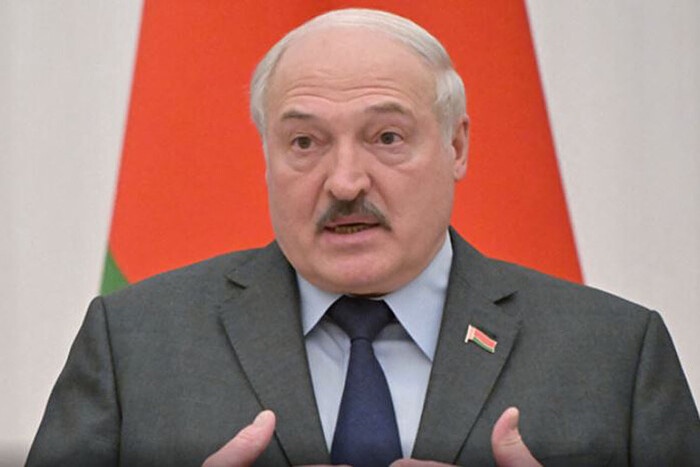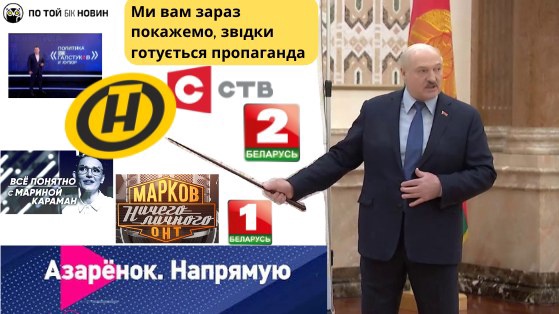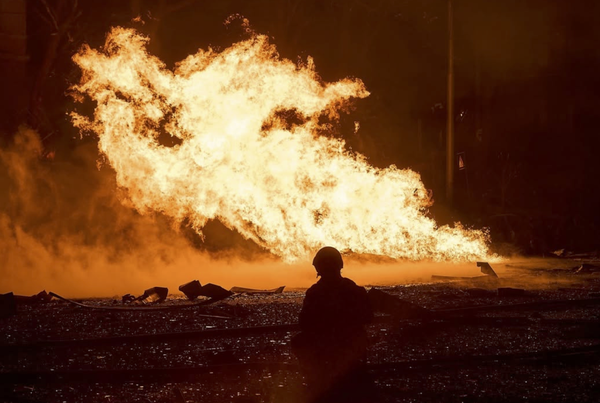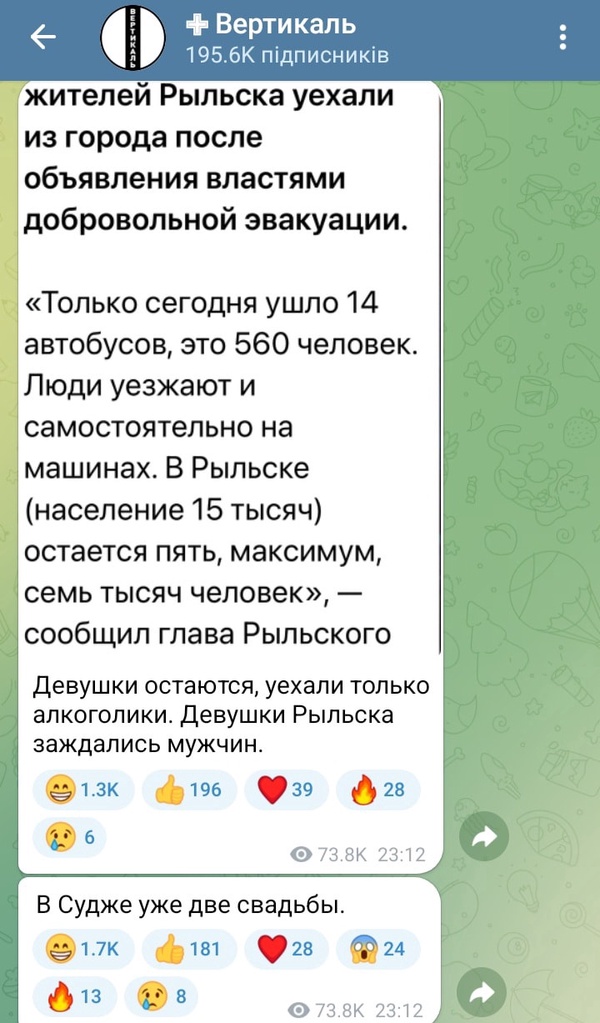Two sides of the same coin: Belarusian and Russian propaganda: similarities and differences

When discussing propaganda, our focus often centers on Russian disinformation campaigns. We tend to overlook the narratives propagated by Belarusian state media, assuming they merely echo the Kremlin’s manipulations and fakes. However, is it accurate to claim that Belarusian “media” solely operate according to Russian “manuals,” without employing their own distinct methods of conducting information warfare?
To investigate this, we analyzed the news, publications, and videos disseminated by the websites of Belarusian TV channels such as Belarus-1, ONT, and STV, as well as the BelTA news agency and the SB. Belarus Segodnya media outlet. In order to access these resources, I had to use a VPN.
One notable difference in Belarusian propaganda machinery is the influential role of television. For many Belarusians residing in the country, television remains the primary source of information, serving as the most active mouthpiece for state propaganda.
This is substantiated by data from the Media IQ project, which has been monitoring media outlets catering to the Belarusian audience since 2018. In the first half of 2023, the STV TV channel maintained its position as the anti-leader in terms of adherence to journalism standards, repeating its performance in 2022, with a score of 2.58 (the highest score being 5). In 2022, Belarus 1 TV channel utilized an average of 67% of propaganda messages out of the total number of messages studied. In 2023, ONT TV channel showed the highest proportion of such messages, at 60%.
How does the Belarusian television system work?
It operates under the umbrella of the Belteleradiocompany, a kind of state-owned media holding company. This entity comprises channels such as Belarus 1, Belarus 2 (entertainment), Belarus 3 (culture), Belarus 4 (regional news), and Belarus 5 (sports). Additionally, there are two other TV companies, the Second National Channel (ONT) and Stolichnoye Television (STV). Notably, among all the state-owned channels, only Belarus 3 offers programming in the Belarusian language.
The programming of the analyzed channels primarily consists of morning and cooking shows, health programs, local history reports, and crime chronicles. The main content, however, is dominated by Russian melodramatic series (even before the full-scale war, our own TV channels didn’t hesitate to fill their airwaves with similar serial trash).
The majority of fabrications and manipulations on these TV channels are broadcast through news and author’s programs. Belarusian news coverage focuses solely on topics deemed important by the authorities, highlighting the country’s economic pseudo-successes and conveying the Russian media agenda and a pro-Kremlin perspective on events in Ukraine and the world. Topics unfavourable to the Belarusian authorities are simply ignored. Another characteristic feature of the news is the obligatory mention of “Alyaksandr Ryhoravych” (Lukashenka, the Belarusian dictator-ed) as a guarantor of stability.
In the world of propaganda, no self-respecting propagandist can operate without their own author’s program. In Belarus, such programs include “Azarionok. Live,” “Markov. Nothing Personal,” “Everything is Clear with Marina Karaman,” “Politics without cravats and money bills with Yevgeny Pustov,” “ObjectiveNo,” and even an author’s project by “political observer” Ihor Tur aptly titled... “Propaganda.” In terms of popularity in the country, these programs have even surpassed their Russian counterparts, such as Skabeyeva and Solovyov. However, for individuals with a drop of common sense, watching these “programs” becomes a challenge, as they present an alternative reality filled with manipulations, insults directed at opponents, religious reverence, and quotations from “batska” (father of the nation - Lukashenka’s paternal nickname-ed).
One of the most ardent fans of this propaganda is Grigory Azarionok. Even without watching his “author’s” programs, you have likely heard this name. Azarionok refers to himself as “the voice of the state” and “a Lukashenka fan from the age of one month.” According to him, Lukashenka “incarnates the sunny, bright, deep, and powerful truth;” he is “the father of the nation,” and “a man of the stars.” For such loyalty, the propagandist has already received several state awards, including the “For Courage” medal, typically bestowed upon military personnel.
Opponents of the Belarusian authorities receive far less flattering epithets from Azarionok, being labeled as “perverts, dirty liars, psychopaths, sodomites, terrorists, the mould of humanity, sewage, the lowest form of life.” Since the onset of the Russian invasion of Ukraine, the propagandist has made no effort to conceal his pro-Russian views. He has been spotted wearing the “Z” symbol on his clothing, referring to Ukraine as a “satanic state,” and has even traveled to the Russian-occupied city of Mariupol.
Overall, the “author’s programs” on Belarusian state television do not even attempt to create an objective portrayal of events. The hosts merely play on the emotions of viewers, striving to evoke the strongest of them - disgust, hatred, and fear. Speakers or so-called “experts” for such programs are selected for their unanimous opinions that align with the theses of state propaganda.
Another distinctive feature of the Belarusian propaganda machine is the concentration of the most influential media outlets in the hands of the Lukashenka administration. All the TV channels we have listed are state-owned. The primary suppliers of news for online media and newspapers are also state agencies - BelTA and the socio-political newspaper SB. Belarus Segodnya (formerly known as Sovetskaya Belarus). Regional online media outlets and smaller media platforms merely reprint information provided by the “centre.”
So, let’s take a look at the world of Belarusian propaganda.
All the messages produced are aimed at shaping the viewpoint of the “domestic population.” The key narrative always praises the ruling regime. Such propaganda messages portray Belarus as a stable, economically self-sufficient, and socially-oriented nation. The people here have a prosperous future ahead, and the skies above are peaceful. But this vision is only possible under the strong leadership of one man at the helm of the state. And, as you can imagine, there is only one such man in Belarus - “Father” Lukashenka, who has been making “right, strong decisions” for decades.
This narrative reinforces the positive image of Alyaksandr Ryhoravich Lukashenka - not depicting him as a self-proclaimed dictator, but rather as a caring, father-like head of state who has adapted the country to life “under illegal and severe restrictions.” At the same time, the reformatting under his leadership has gone so well that every sector, from construction to history, from pricing to the military, is now operating extremely efficiently.
But, the message is clear - none of these successes would be achievable without an iron-fisted “strong hand” at the helm of the country. The local news creates the impression that there is no area of life where Lukashenka does not maintain full control. What’s more, the bureaucratic apparatus is said to only function properly thanks to the total control exercised by the “Father”, without which the entire system would collapse like a house of cards.
On the eve of International Women’s Day, the Belarusian media ramped up the messages about “preserving traditional values.” And so, Lukashenka met with various women’s groups and foundations. Interviews after these events quoted attendees proclaiming that traditions of previous generations must be respected, that women should be more vocal advocates for “the values of Belarus,” while also acknowledging that women are equal to men because they have the right to education and careers. However, these speakers affirmed that “we have men in key positions, of course,” as women embrace their role as the “reliable rear guard” since, “after all, the purpose of a woman is to give birth to a child, to procreate.” The deputy head of the Belarusian Women’s Union summarized the meeting by stating “such events always remind and show that Belarus has everything required for a good life, a place where citizens can raise children and set interesting goals for themselves.”
Another narrative is that “everything in the storehouses is available” - a quote directly from state media outlet Belarus Segodnya. The local media claims that Belarus possesses a strong economy. Reading local news sites, one gets the impression of analyzing results from bygone Soviet five-year plans. For example, they boast that in 2023 the GDP grew by 3.9% while industrial production increased by 7.7%. Amid news of egg shortages in Russia, Belarus swiftly assured that its massive egg production allows exporting 25-30% of the total supply. The reports assert that the dairy sector can cover 267% of domestic demand.
Why are percentages and figures constantly appearing in the daily news in Belarus?
European countries and the United States have imposed sanctions on Belarus for aiding Russia’s war in Ukraine, compounding earlier sanctions following the 2020 “elections.” The country soon experienced shortages of many goods and products, forcing authorities to introduce strict price controls on goods.
Opposition media broadcasting mostly from Poland report average food prices have risen by 7% on average. Yet pro-government media outlets are spreading a different fake reality: sanctions are not working, food is plentiful, and industrial production has tripled in efficiency.
The main message the propaganda is trying to push into the minds of Belarusian citizens is that the Western sanctions against Belarus are not harmful, but actually make the country stronger.
This narrative feeds into another - depicting a stable, powerful Belarus opposing the “weak” West, the personified collective enemy. Any problems in Belarus, the propaganda asserts, are all provoked by the West’s intrigues. Unlike the Belarusian regime, the West doesn’t think or care about ordinary people, instead imposing sanctions, stoking conflicts between “fraternal peoples,” and advocating war over peace.
“The goal of the West’s deceptive policy is to profit from the misery of other people around the world,” declared one Belarusian talk show. What is Belarus’s response to this “insidiousness”? To portray the West’s democracy, technology, freedom and liberal values as “a complete deception.”
The “decaying” West is also a popular theme in Belarusian outlets, echoing Russian media claims about the “difficulties” plaguing life there: lack of morality, LGBT+ propaganda, high prices, the economy “on the brink…”, Europe freezing without Russian gas, etc. One person worth reading is ONT host Anzhelika Averkova who paints a chaotic picture of American cities: “There is chaos and lawlessness on the streets of American cities. Shoplifting has become so commonplace that police don’t intervene. Drug addicts litter the cityscape. And an ordinary restaurant dinner may be a decent American’s last.”
In this worldview presented by propagandists, all countries face difficulties - but only the “collective West” is to blame. And this West is destined to soon disintegrate/collapse while Lukashenka supporters will continue to live and thrive. We just need to wait a little longer.
In 2024, the propaganda media gave special attention to the topic of elections. In February, Belarus held elections for parliament and local councils. These were the first elections since the 2020 presidential elections, which saw mass protests due to the arrests of opposition candidates and significant discrepancies between the official results and the opposition’s parallel vote count.
The propagandists portrayed the elections as a festive occasion attended by “whole families.” Reports from polling stations included photos of parents with babies in their arms. Everything was calm, and there were no critical remarks. The state media outlet Belarus Segodnya wrote, “The Belarusian Central Election Commission assesses the past parliamentary elections positively. The authorities, including the President, are in solidarity with them, and society stands with them.”

In an attempt to please Lukashenka, the state TV channel ONT went even further, stating:
The report mentioned that presidential elections will be held in 2025 and claimed that 87% of Belarusians unequivocally support the current government. Where did this statistic come from? Directly from Alyaksandr Lukashenka.
In reality, there is no real opposition left in Belarus. The regime has gone to great lengths to “cleanse” any dissenting voices - imprisoning some opponents while forcing others into exile. The remaining opposition has neither influence over elections nor the right to vote, as no polling stations were formed abroad. Those who wanted to cast a ballot were simply told to return to Belarus.
There were four candidate parties - all pro-government. Prior to the polls, Lukashenka imposed a re-registration process that liquidated over a thousand NGOs, foundations, political parties, associations, etc. The electoral code itself was amended to lower the turnout threshold, ensuring the elections could proceed regardless.
In essence, the parliamentary elections in Belarus were a purely formal exercise to legitimize the current government in the eyes of the public and the foreign community. Pro-government media dutifully assisted the ruling regime by creating the impression the elections were held legitimately and that Lukashenka and the pro-government parties had the right to rule the country.
A dove of peace with sharp claws
Finally, it’s worth analyzing how the Belarusian media portrays Russia’s war in Ukraine and Ukraine itself. In fact, the Belarusian territories serve as a staging ground for Russian forces. Despite this, state media outlets depict Belarus as a “dove of peace.” The pro-government media actively exploits the population’s fear of war, casting dictator Lukashenka as a guarantor of security. Their messaging says: Look at the turmoil in neighbouring Ukraine, while we are not involved in the war. All is quiet and calm under the leadership of “Alyaksandr Ryhoravych,” for we are in favour of peace - or rather, peace negotiations.
In this worldview, Russia did not invade Ukraine but rather came to “liberate” it. The stated reasons mirror the Kremlin’s justifications for the war: eight years of “bombarding the Donbas,” “infringement” on Russian speakers, nationalist propaganda, and Western influence.
Nearly all war news about Ukraine consists of quotes directly from Russian media like RIA Novosti and TASS. Quotes are routinely taken out of context to amplify the Russian version of events. The “technique of silence” is also quite popular - there is virtually no information about the massive shelling of Ukrainian cities or civilian casualties from such attacks. Meanwhile, state outlets republish data about daily air raid siren from Ukraine’s Ministry of Digital Transformation. By staying silent on Russian atrocities, Belarusian propagandists help conceal war crimes and downplay their scale.
Instead, the shelling of Belgorod that killed dozens of Russians became a major propaganda topic for several months. Simultaneously, propagandists actively spread epithets that Russians regularly use against Ukrainians: “Kyiv Nazis,” “Kyiv regime,” “UkrBandera vandals.” By painting Ukrainians as a dehumanized enemy, propagandists strip them of their humanity. This makes it easier to justify hatred and violence against Ukrainians - easier to justify Russia’s actions.
Russian “victories” like the recent “liberation” of Avdiivka received widespread coverage. After Ukrainian forces withdrew, Belarusian media outlets referenced Russian media claims that the first residents in Avdiivka had already applied for Russian passports, that the city would soon be rebuilt, and electricity and water restored “in the near future.” Such messages are aimed at discouraging domestic opposition to the war while reinforcing Russia’s image as a liberator.
Although Belarusian news media portray Russia as the “winner,” the theme of “peace talks” and “World War III” is promoted just as actively - provided NATO/US/Germany/France send weapons, planes, missiles or troops. “Western experts” are routinely quoted, though their backgrounds invariably reveal Russian traces.
On the “peace talks” topic, Russia is cast as the peacemaker allegedly making repeated overtures to Ukraine and the West – but the peace proposals are constantly rejected because the war’s continuation benefits them.
In reality, these narratives aim to reduce global support for Ukraine by suggesting they could end the war anytime but refuse to do so. However, the fact that Russia does not make any proposals, but sets unacceptable ultimatums is conveniently omitted. Most importantly, it is Russia that could immediately halt the war at any time by withdrawing troops from Ukrainian territory.
In conclusion, when covering Russia’s invasion, Belarusian propaganda media simply repeat the Kremlin’s messages while justifying Russian military actions in Ukraine. The blame is shifted to the West, while Belarus itself purportedly plays no role in aiding Russia - only “fighting against NATO/Western provocations that are trying to pull it into the war.”
Ultimately, all Belarusian media channels are subordinate to the regime. The state’s propaganda apparatus acts as an effective tool to create a positive image for Lukashenko’s regime and reinforce his grip on power ![]()
Prepared by Aliona Malichenko.







